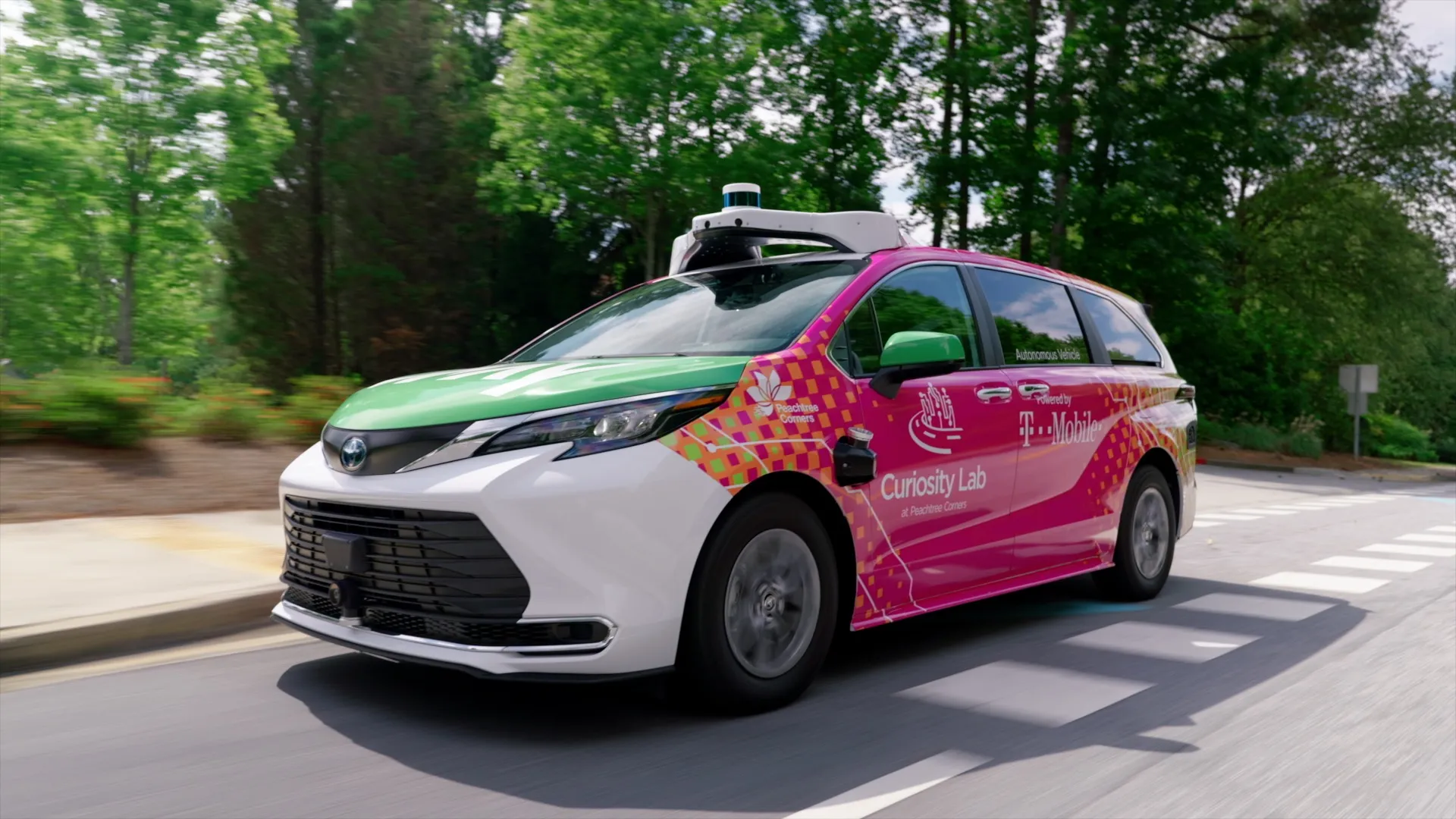The Virginia Tech Transportation Institute and the Virginia Department of Transportation (VDoT) has unveiled four expansions to the Virginia Smart Road to accelerate advanced-vehicle testing and explore how automated and autonomous vehicles (AVs) will function on U.S. roadways including edge-and-corner environments. Two new facilities have opened for testing: The Surface Street Expansion, an urban test bed, and the Live Roadway Connector, which connects the Smart road to the U.S. Route 460-Business,
November 27, 2017
Read time: 3 mins
The Virginia Tech Transportation Institute and the Virginia Department of Transportation (VDoT) has unveiled four expansions to the Virginia Smart Road to accelerate advanced-vehicle testing and explore how automated and autonomous vehicles (AVs) will function on U.S. roadways including edge-and-corner environments.
Two new facilities have opened for testing: The Surface Street Expansion, an urban test bed, and the Live Roadway Connector, which connects the Smart road to the U.S. Route 460-Business, public road.
The recently completed surface street area has been aims to accommodate urban and residential scenarios in a safe and controlled facility as well as enabling researchers to study pedestrian risk. It has portable features, which include reconfigurable buildings; roadside elements, such as sidewalks, a bus stop, fire hydrants, light poles, bike lanes, and alleyways; roundabout and stop-controlled intersections; and removable lane markings. These props can be moved and reinstalled, to recreate a variety of real-world settings such as neighbourhoods and city intersections.
Additionally, the Live Roadway Connector is designed with the intention of allowing drivers to seamlessly transition between a live traffic environment and the closed Smart Road facility. This feature will enable researchers to analyse how drivers may behave or adjust their behaviour after driving under automated mode for long periods of time. The connector also increases the length of the highway section of the Smart Road to 2.5 miles.
Scheduled to open in 2018, the Rural Roadway Expansion will test advanced vehicles on a track that will feature hilly and winding roads, short sight distances, small bridges and narrow sections, off-road sections, embankments, soft grass shoulders, natural foliage overhanging the road, and intersections. It will allow researchers to meet the industry demand for testing automated and AVs in urban, residential and rural areas.
Slated to open next year, the Automation Hub will house a new internship program focused on accelerating hands-on practical skill development for Virginia Tech students. Interns will have the opportunity to collaborate with researchers from the VDoT, the University, and the transportation institute as well as automotive industry partners on transportation research and development projects.
Theresa Mayer, vice president of research and innovation at Virginia Tech, said: “This is a critical time in transportation research, a time in which we are realizing the future of transportation at a more accelerated pace than ever before. Advanced vehicles are no longer a pipedream, the spark of an idea in an engineer’s imagination. These vehicles are here; they are being deployed on our nation’s roads."
“Our new testing facilities will undoubtedly enhance industry, governmental, and researcher needs for testing advanced-vehicle technology. It is imperative that our faculty and students work closely with such entities to help design, test, and deploy advanced systems for the betterment of the entire transportation community", Mayer added.
Two new facilities have opened for testing: The Surface Street Expansion, an urban test bed, and the Live Roadway Connector, which connects the Smart road to the U.S. Route 460-Business, public road.
The recently completed surface street area has been aims to accommodate urban and residential scenarios in a safe and controlled facility as well as enabling researchers to study pedestrian risk. It has portable features, which include reconfigurable buildings; roadside elements, such as sidewalks, a bus stop, fire hydrants, light poles, bike lanes, and alleyways; roundabout and stop-controlled intersections; and removable lane markings. These props can be moved and reinstalled, to recreate a variety of real-world settings such as neighbourhoods and city intersections.
Additionally, the Live Roadway Connector is designed with the intention of allowing drivers to seamlessly transition between a live traffic environment and the closed Smart Road facility. This feature will enable researchers to analyse how drivers may behave or adjust their behaviour after driving under automated mode for long periods of time. The connector also increases the length of the highway section of the Smart Road to 2.5 miles.
Scheduled to open in 2018, the Rural Roadway Expansion will test advanced vehicles on a track that will feature hilly and winding roads, short sight distances, small bridges and narrow sections, off-road sections, embankments, soft grass shoulders, natural foliage overhanging the road, and intersections. It will allow researchers to meet the industry demand for testing automated and AVs in urban, residential and rural areas.
Slated to open next year, the Automation Hub will house a new internship program focused on accelerating hands-on practical skill development for Virginia Tech students. Interns will have the opportunity to collaborate with researchers from the VDoT, the University, and the transportation institute as well as automotive industry partners on transportation research and development projects.
Theresa Mayer, vice president of research and innovation at Virginia Tech, said: “This is a critical time in transportation research, a time in which we are realizing the future of transportation at a more accelerated pace than ever before. Advanced vehicles are no longer a pipedream, the spark of an idea in an engineer’s imagination. These vehicles are here; they are being deployed on our nation’s roads."
“Our new testing facilities will undoubtedly enhance industry, governmental, and researcher needs for testing advanced-vehicle technology. It is imperative that our faculty and students work closely with such entities to help design, test, and deploy advanced systems for the betterment of the entire transportation community", Mayer added.









